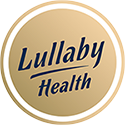“Don’t do drugs!” It’s one of the key things that parents teach their kids to help them stay safe and healthy. So you may have a mix of reactions when your child’s doctor suggests prescribing them alternative medicine.
You might be quite comfortable with the idea – even eager to try something new that might help your child. Many Australian parents are asking doctors for alternative medicine. Some parents even source it themselves through unregulated channels.
Other parents feel more hesitant.
You’re bound to have questions about the pros and cons of any medication prescribed for your child. So, let’s take a closer look at alternative medicine and its use in paediatric patients.
What actually is alternative medicine?
Alternative medicine refers to three particular species of hemp plant (Cannabis sativa, Cannabis indica, Cannabis ruderalis).
Cannabis contains chemicals called cannabinoids, which interact with cannabinoid receptors (CB) within your body.
The cannabis plant contains 80-100 cannabinoids. The two most commonly used medically are:
- THC (tetrahydrocannabinol) – this is the chemical that gets people high
- CBD (cannabidiol) – this has no intoxicating effects.
Most alternative medicine contains either THC or CBD. Some contain both.
Why might a doctor prescribe a child alternative medicine?
Because your child is still struggling.
Alternative medicine is not a first-line treatment. By the time it is prescribed, your child has usually tried many other treatments for their condition – and those treatments haven’t worked sufficiently.
That’s where alternative medicine comes in. It offers a fresh way to manage your child’s condition or the side effects of other treatments they’re receiving.
How does alternative medicine help?
Alternative medicine is thought to help by acting on your endocannabinoid system to improve things like mood, memory, sleep and appetite.
What is the endocannabinoid system (ECS)?
The ECS is an extensive network of natural molecules (called cannabinoids) which interact with various pathways in your child’s body, calibrating things like their alert levels or hunger.
The ECS holds the keys to many vital functions like pain control, temperature regulation, sleep, inflammatory or immune responses, eating, emotional processing and memory.
Alternative medicine taps into this system and uses it as a catalyst for changing their health.
How would my child take alternative medicine?
Alternative medicine can be taken in several ways, including:
- Vaping
- Swallowing a capsule
- Dropping some oil under their tongue or blending it in a smoothie
- Spraying it into their mouth or up their nose.
How is alternative medicine different to street cannabis?
Essentially, one is a legal medication and the other is a street drug. There’s a world of difference between them.
Like other medications, the production of alternative medicine is strictly regulated. Alternative medicine is:
- Grown in a controlled environment – soil, water, light and nutrients are strictly managed to increase the amount of the most useful cannabinoids and reduce less desirable chemicals
- Stable and consistent – meaning each dose is the same
- Usually higher in CBD as this is often more relevant for treatment
- Designed to be taken orally rather than smoked.
In contrast, street cannabis:
- Is grown with no controls
- Varies considerably in strength, meaning no two dose are the same
- Is often mixed with other chemicals or additives – practically anything could be in there
- Usually dried and smoked, meaning you incur many of the cancer-causing risks of smoking.
Are there any side effects?
All medicines have some side effects. When it comes to alternative medicine, side effects may include:
- Drowsiness
- Dizziness
- Difficulty concentrating or remembering things.
If you’re concerned about side effects, please call 1300 375 384 and speak to one of our clinical advisors.
What safeguards are in place?
Alternative medicine is a controlled drug and its use in Australia is regulated by the Therapeutic Goods Administration and state health departments.
Then there’s the expertise of your doctors. In many cases, your child is already under the care of a GP and a paediatrician before they’re referred to a specialist paediatrician who may prescribe alternative medicine.
Paediatric patients at Lullaby Health
Lullaby Health’s Dr Katie Banerjee is a specialist paediatrician with over 25 years of experience.
Some of her patients and families have been enquiring about the role of CBD for a number of years now, often seeking out unlicensed products online.
Dr Banerjee now helps her patients access a better way by providing a paediatric service at Lullaby Health. She uses her extensive skills to assess and prescribe alternative medicine in a careful and controlled manner, complementing care from your child’s usual paediatrician
If you’d like Dr Katie’s assistance with your child’s medical condition, please ask your current doctor for a referral and then book an appointment.
Disclaimer
Lullaby Health is not promoting the use of alternative medicine. Alternative medicine does affect every person differently, due to factors such as size, weight, health, dosage, tolerance, and age. Alternative medicine might not work for you, and you might experience side effects. Information provided by Lullaby Health is for educational and informational purposes only. For medical advice, please refer to your doctor. Alternative medicine in Australia is regulated by the Therapeutic Goods Administration and details about cannabis as a scheduled drug can be found on their website.




